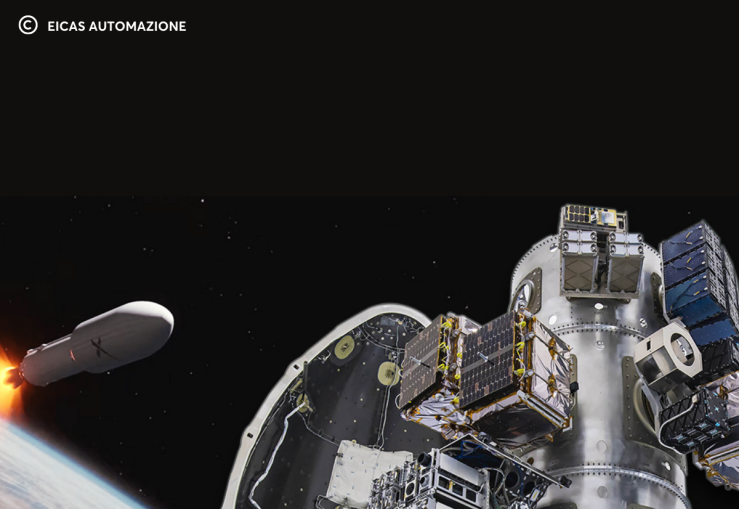The Italian startup EICAS Automazione is making ultra-accurate star trackers for small satellite operators to increase the quality of space missions. The innovation has an affordable price and determines satellite orientation in space based on a few stars and onboard star catalogues. The EIC funding changed the roots of EICAS Automazione completely, and the company is now ready to reach the market or, in other words, the orbit. The company started in the nineties, and even if today's success seems literally written in the stars, EICAS achieved all this through hard teamwork. We sat down with the CEO, Gabriella Caporaletti, to discover more about their space race.
When Gabriella completed her graduation, she was far from imagining that 30 years later she would be leading an aerospace company going to orbit. She joined EICAS Automazione right after university and started her career in their automotive department. The Italian company, founded by a group of professors and industrial researchers led by Francesco Donati, cooperated in the ESA Hipparcos scientific mission for more than 20 years, since the early 1980s up to the mission’s conclusion (1997). Gabriella followed their work with close eyes and got immediately fascinated by the aerospace world. "Making a star tracker is something special. Very few companies in the world can do it because we have to gather knowledge from different fields. You have to know astronomy, learn about optics, electronics, the algorithms that involved auto-determination, metrology and of course, all what deals with space products ", she explained.
Up to 14.153 smallsats will be launched in orbit in 2021-2031. Smallsats are tiny spacecrafts with low costs and fast development schedules, mainly launched in large constellations for target applications like telecommunication, Earth observation, and Inter Satellite Link. Over the last years, EICAS decided to focus on the biggest niche of all and built a multicamera star tracker targeting the emerging small satellites market's needs, especially in terms of cost-competitiveness. "The cameras that we developed in the nineties for large satellites cost about EUR 1 million. Our idea was to bring the high accuracy, flexibility and scalability with an affordable price to the small satellites market", said Gabriella. The multiple cameras can be installed anywhere on the vehicle to obtain optimal sky coverage. The master camera is the only one installed in a rigid way to the payload; the attitude of the other cameras is measured with respect to it and continuously updated, based on intelligent data fusion of star measurements and sophisticated autocalibration techniques.
Space 2.0 is here
While the world is on the cusp of a new era full of steps on space exploration, EICAS doesn't want to stay behind. The company is validating in orbit the innovative star tracker ARGO 1.0, and at the same time, has already a second product, conceived for Constellations of SmallSats, in the pipeline. ARGO 2.0 is under development thanks to a contract of the European Space Agency. EICAS will redesign the first version and is already planning its in-orbit demonstration for Q2 2022. "We are also looking at other markets, including space situational awareness. If we can detect stars with cameras, we can also detect objects and other space threats. So, we are also exploring the possibility to use a star tracker in contexts like debris capture", revealed the CEO.
EICAS Automazione received a Phase 2 Grant from the European Innovation Council to bring ARGO 1.0 technology readiness from TRL6 to TRL9, which in space terms means validation in orbit. The mission just started its operative phase and the preliminary data received is showing successful results. In parallel, the company is also planning another fly on a business level. "In the past, we were developing products for other companies, and they were implementing them in the market. With ARGO, we completely change our approach, and now we want to arrive at the market. Our project outcome will be the foundation of a spin-off specifically dedicated to the production and commercialisation of ARGO and a set of additional products that will come from this. Space is fantastic but also very challenging. We see this as a unique opportunity to change our approach and to arrive at the market by ourselves", concluded Gabriella.
To discover more about their achievements, consult the EICAS website here or the ARGO website here.

DISCLAIMER: This information is provided in the interest of knowledge sharing and should not be interpreted as the official view of the European Commission, or any other organisation.

